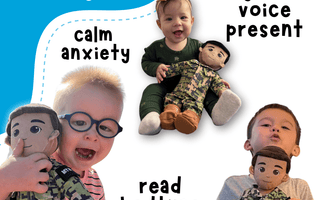
Explaining War to Kids: A Guide for Military Families
For many military families, discussing the realities of war with children can be a delicate task. With parents often deployed and children seeking answers, it's crucial to approach the conversation with empathy and clarity. In this article, we'll explore effective ways to discuss war with your kids, ensuring they feel supported even when times are uncertain.
Understanding Your Child's Perspective
Children perceive the world differently than adults. Understanding their perspective is the first step when talking about war with children. Young kids may view war through the lens of media or the reactions of those around them. Thus, it’s essential to provide them with simple, clear explanations.
Children often have vivid imaginations and can sometimes make assumptions that may not be grounded in reality. Encouraging open dialogue allows them to express their fears and curiosity, creating a safe space for questions. Resources like Military OneSource offer valuable insight into managing such discussions.
Keeping the Conversation Age-Appropriate
The age of your child greatly influences how you should approach the topic. For younger children, using simple language and relatable analogies can help them grasp complex concepts. For example, discussing the idea of "teams" may translate more easily than abstract notions of conflict.
Teenagers, on the other hand, may be more informed through school or social media. They might have more complex questions about motives, politics, or consequences. In such cases, it’s important to involve them in deeper discussions and encourage critical thinking, while still being prepared for an open and honest exchange.
Emphasizing Safety and Security
One of the paramount concerns for children, especially those in military families, is safety. Reassure them about the family's safety and the measures in place to protect their parent during deployment. Highlight that while your family’s current situation can be challenging, it's also a unique opportunity to learn resilience and adaptability.
Discussing protocols, routines, and the role of service members in maintaining peace can help children understand the purpose behind military operations. This knowledge can reinforce their sense of safety and trust in their family structure.
Utilizing Resources and Support Systems
When the topic of war becomes too difficult to manage alone, seeking external resources can be incredibly helpful. Consider leveraging support networks within the military community, including counselors and family services.
Books specifically designed to explain war and military life to children can also be instrumental. Visit our bookstore for a curated selection that addresses these sensitive topics in an educational and comforting way.
Fostering Connection Despite Distance
For families separated by deployment, maintaining a connection is essential. Utilize technology for regular communication through video calls or emails. Sending handwritten letters or care packages can also personalize the connection, making the distance feel less daunting.
Encourage your child to create a deployment calendar or maintain a journal to track days and express feelings. This not only helps in understanding and








